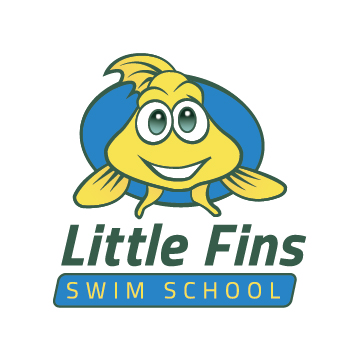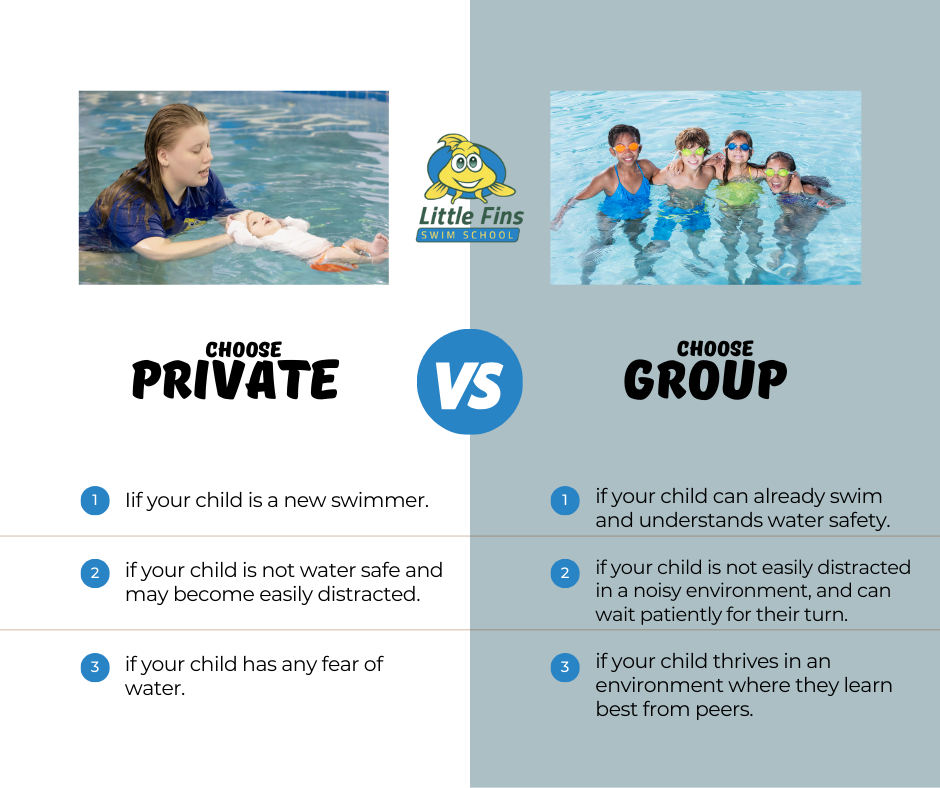One-on-one vs. Group Swimming Lessons: What's the Best Choice?
/We all know that swim lessons are an essential life-saving skill. The World Health Organization (WHO) states that there are an estimated 236,000 annual drowning deaths worldwide. The CDC reports that drowning is the leading cause of accidental death in children ages 1 to 4 years old. It is the second leading cause of death in children under the age of 14 years old. The WHO says by teaching children basic swim skills, 774,000 children can be saved from drowning between 2022 and 2050.
There are many options for swim instruction out there, but what is the best choice?
The Red Cross encourages parents to ask a few questions to find the right fit for your family.
Is your child a new swimmer?
This needs to be the first question you ask when looking at lessons. New swimmers need to focus on survival, and group lessons are far more social than private (one-on-one) lessons. Private lessons allow your instructor to focus 100% of their attention on your child. Group lessons may seem fun and exciting for accomplished swimmers, but they are also chaotic, and distracting. Research shows that new swimmers struggle in this type environment for extensive amounts of time before learning the basics.
How well does your child pay attention?
You want to choose swim lessons that maximize your child’s attention. To do this you want to choose an environment where your child will learn the most during their lesson time. The goal is for your child to pay attention to the instructor from the start of the lesson until the end of the lesson time. If your child is an attentive student, they may do well in a group lessons, but often receive lesson personalized attention. However, if your child is easily distracted, an individual coach’s personalized attention might be the better choice, especially if they’re just starting. Safety is a huge concern during swim lessons, and children must listen and wait patiently during group instruction in order to remain safe.
How active is your child?
If your child is extremely active, like mine, and moves all the time, they might not do well in a group class. Group class structure usually requires kids to wait their turn. Active children can sometimes become disruptive during group classes–which is no fault of theirs but can lead to negative or unsafe experiences. One-on-one lessons allow an instructor to keep an active child focused. However, if you have a child who needs to take frequent breaks to rest or mentally regroup, then a group class offers those natural pause points. In a private lesson, your coach can also work with your child to make sure that they get the breaks they need, but typically, one-on-one sessions are more active from start to finish.
Does your child have any fear of water?
There are many reasons kids develop a fear of water. It is best to work through these fears with consistent and constant positive reinforcement. Private lessons can provide timid children with a less intimidating or embarrassing environment to learn and overcome fears. A private instructor can use known and proven methods to help your child gain confidence and learn those crucial skills. However, for some children, peer encouragement can play an instrumental role in overcoming their fears. Seeing other kids their age swimming proficiently can give them gain confidence and learn new skills. Either way, building trust and making a child feel safe with their instructor is a great way to start overcoming a fear of water.














